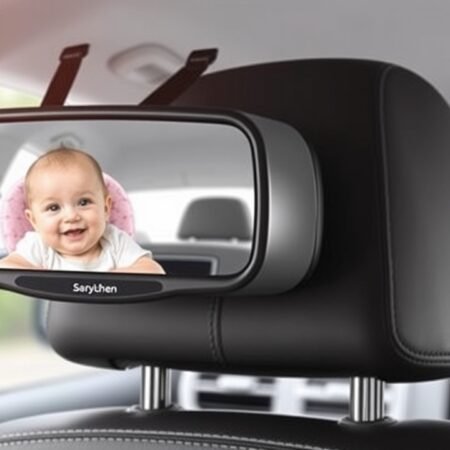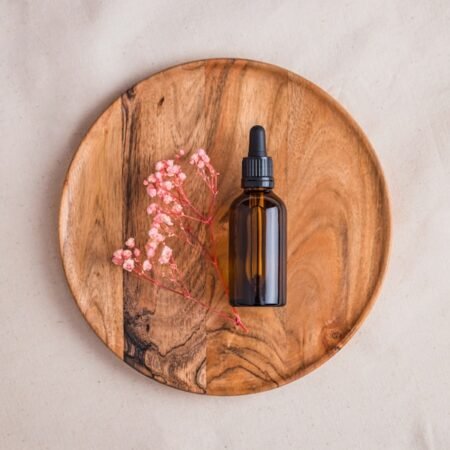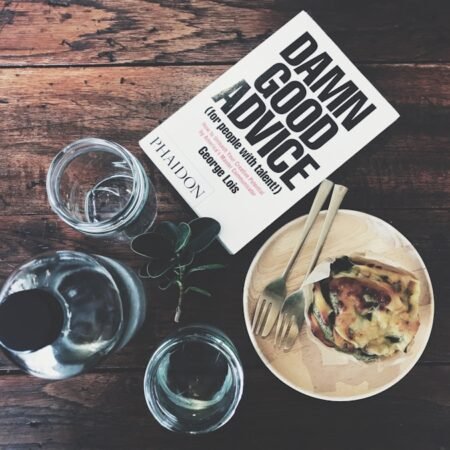As a parent, introducing your baby to solid foods is an exciting milestone. It’s a time when you get to watch your little one explore new flavors and textures, and it’s also an opportunity to bond over mealtime. One of the essential tools for this stage of your baby’s development is a baby spoon. Baby spoons are specially designed to be gentle on your baby’s delicate gums and teeth, making it easier for them to transition from breastmilk or formula to solid foods.
When it comes to introducing baby spoons to your little one, it’s important to choose the right spoon for their needs. There are various types of baby spoons available on the market, including silicone, plastic, and metal spoons. Each type has its own set of benefits and drawbacks, so it’s essential to consider your baby’s individual needs and preferences when selecting a spoon. Additionally, you’ll want to look for spoons that are easy for your baby to hold and manipulate, as this will help them develop their fine motor skills as they learn to feed themselves.
Key Takeaways
- Use colorful and fun baby spoons to make mealtime enjoyable for your baby
- Introduce baby spoons to your child gradually and patiently
- Choose baby spoons that are safe, easy to hold, and gentle on your baby’s gums
- Get creative with baby spoons by using them for finger painting or sensory play
- Encourage independent feeding by letting your baby hold and explore the baby spoon while eating
Choosing the Right Baby Spoons for Your Child
When it comes to choosing the right baby spoons for your child, there are a few key factors to consider. First and foremost, you’ll want to look for spoons that are made from safe, non-toxic materials. Silicone spoons are a popular choice for many parents, as they are soft and gentle on your baby’s gums and teeth. They are also easy to clean and come in a variety of fun colors and designs that can make mealtime more enjoyable for your little one.
Another important factor to consider when choosing baby spoons is the size and shape of the spoon. Look for spoons that are small enough for your baby’s mouth but large enough to hold an adequate amount of food. Some spoons also feature a shallow bowl, which can make it easier for your baby to scoop up food as they learn to feed themselves. Additionally, consider the handle of the spoon – it should be easy for your baby to grip and hold onto as they learn to feed themselves.
Creative Ways to Make Mealtime Fun with Baby Spoons
Mealtime with a baby can sometimes be a messy and challenging experience, but it doesn’t have to be! There are plenty of creative ways to make mealtime fun with baby spoons that can help turn feeding time into an enjoyable and bonding experience for both you and your little one. One fun idea is to use colorful and playful baby spoons that feature fun designs or characters that can capture your baby’s attention and make mealtime more exciting. You can also try using different types of baby spoons, such as silicone or soft-tip spoons, to add variety to your baby’s feeding experience.
Another creative way to make mealtime fun with baby spoons is to incorporate games or songs into the feeding process. For example, you can play “airplane” with the spoon by making zooming noises as you bring the spoon towards your baby’s mouth. You can also sing a silly song or make funny faces to keep your baby entertained while they eat. Additionally, you can try using different textures of food and letting your baby explore the different sensations with their spoon. By making mealtime fun and engaging, you can help your baby develop a positive association with food and feeding time.
Tips for Encouraging Independent Feeding with Baby Spoons
| Tip or Trick | Description |
|---|---|
| Use Colorful Spoons | Choose baby spoons in bright colors to make mealtime more visually appealing for your baby. |
| Play Games | Incorporate games like “here comes the airplane” to make feeding time more fun and interactive. |
| Use Different Textures | Introduce different textures of baby food and let your baby explore them with the spoon. |
| Make Funny Faces | Make funny faces or sounds while feeding to keep your baby entertained. |
| Let Them Hold the Spoon | Allow your baby to hold the spoon and try to feed themselves, even if it gets messy. |
As your baby grows and develops, it’s important to encourage their independence, especially when it comes to feeding themselves. Using baby spoons can be a great way to help your little one develop their fine motor skills and gain confidence in their ability to feed themselves. One tip for encouraging independent feeding with baby spoons is to offer your baby a spoon of their own during mealtime, even if you are still helping them with the majority of their feeding. This can help them practice holding and manipulating the spoon, which is an important skill for self-feeding.
Another tip for encouraging independent feeding with baby spoons is to offer foods that are easy for your baby to pick up with their spoon, such as soft fruits or vegetables. You can also try pre-loading the spoon with food and then handing it to your baby, allowing them to practice bringing the spoon to their mouth on their own. It’s important to be patient and supportive as your baby learns to feed themselves – it may take time for them to get the hang of using a spoon, but with practice and encouragement, they will eventually become more confident and independent eaters.
Making Healthy Eating Fun with Baby Spoons
It’s never too early to start instilling healthy eating habits in your little one, and using baby spoons can be a great way to make healthy eating fun and enjoyable for your baby. One way to make healthy eating fun with baby spoons is to offer a variety of nutritious foods in different colors, textures, and flavors. You can use the spoon to introduce your baby to new foods and encourage them to explore different tastes and sensations.
Another way to make healthy eating fun with baby spoons is to involve your little one in the meal preparation process. You can let them help you mix or stir foods with their spoon, or even let them “taste test” different ingredients as you cook. By involving your baby in the cooking process, you can help them develop an appreciation for healthy foods and create positive associations with mealtime.
Overcoming Mealtime Challenges with Baby Spoons
Mealtime with a baby can sometimes be challenging, especially when they are learning to feed themselves with a spoon. However, there are several strategies you can use to overcome mealtime challenges and make feeding time more enjoyable for both you and your little one. One common challenge parents face is dealing with messes during mealtime – babies are notorious for getting food everywhere! To overcome this challenge, consider using a bib or smock to protect your baby’s clothes, and place a plastic mat or tray under their high chair to catch any spills.
Another common challenge parents face during mealtime is dealing with a picky eater. If your baby is refusing certain foods or showing signs of picky eating behavior, try not to stress – it’s normal for babies to go through phases of picky eating. Instead, focus on offering a variety of nutritious foods and letting your baby explore different tastes and textures at their own pace. By staying patient and positive during mealtime, you can help create a relaxed and enjoyable feeding environment for your little one.
Safety Tips for Using Baby Spoons at Mealtime
When using baby spoons at mealtime, it’s important to prioritize safety to ensure that your little one stays safe and comfortable during feeding. One important safety tip is to always supervise your baby during mealtime, especially when they are using a spoon. Babies can be curious and may try to put the spoon in their mouth too deeply or play with it in ways that could pose a choking hazard. By staying close by and keeping an eye on your little one while they eat, you can help prevent accidents and ensure that they are using their spoon safely.
Another safety tip for using baby spoons at mealtime is to check the temperature of the food before offering it to your baby. Hot foods can pose a burn risk for babies, so be sure to test the temperature of the food on the back of your hand before giving it to your little one. Additionally, be mindful of any sharp edges or rough spots on the spoon that could potentially harm your baby’s delicate gums or teeth. Look for spoons that are specifically designed for babies and feature smooth edges and gentle materials that won’t cause any harm during feeding.
In conclusion, introducing baby spoons into your little one’s feeding routine can be a fun and exciting experience for both you and your baby. By choosing the right spoon for your child’s needs, getting creative with mealtime activities, encouraging independent feeding, making healthy eating fun, overcoming mealtime challenges, and prioritizing safety, you can help create a positive feeding environment that sets the stage for healthy eating habits in the future. With patience, support, and plenty of love, mealtime with baby spoons can become an enjoyable bonding experience that helps foster a lifelong love of nutritious foods in your little one.
FAQs
What are baby spoons?
Baby spoons are specially designed utensils for feeding infants and young children. They are typically smaller in size, have a softer texture, and are often made with BPA-free materials to ensure safety for babies.
How can baby spoons make mealtime fun?
Baby spoons can make mealtime fun by incorporating colorful and playful designs that capture the attention of babies. Some baby spoons also come with features such as temperature indicators or easy-grip handles to make feeding more enjoyable for both the baby and the caregiver.
What are some tips for making mealtime fun with baby spoons?
Some tips for making mealtime fun with baby spoons include using different colored baby spoons to engage the baby’s senses, incorporating interactive games or songs during feeding, and allowing the baby to hold and play with the spoon to encourage self-feeding.
Are there any safety considerations when using baby spoons?
When using baby spoons, it’s important to ensure that they are made with safe materials such as BPA-free plastic or silicone. Additionally, caregivers should always supervise babies during feeding to prevent any choking hazards or accidents with the baby spoon.































































